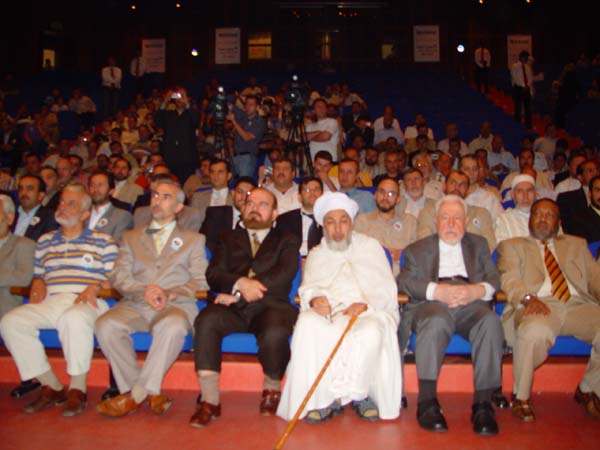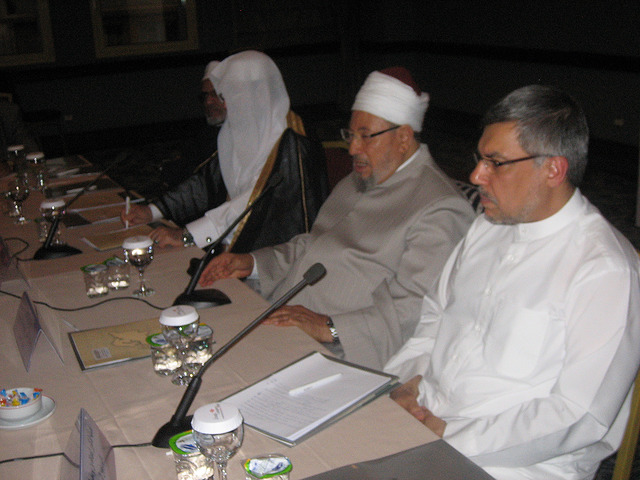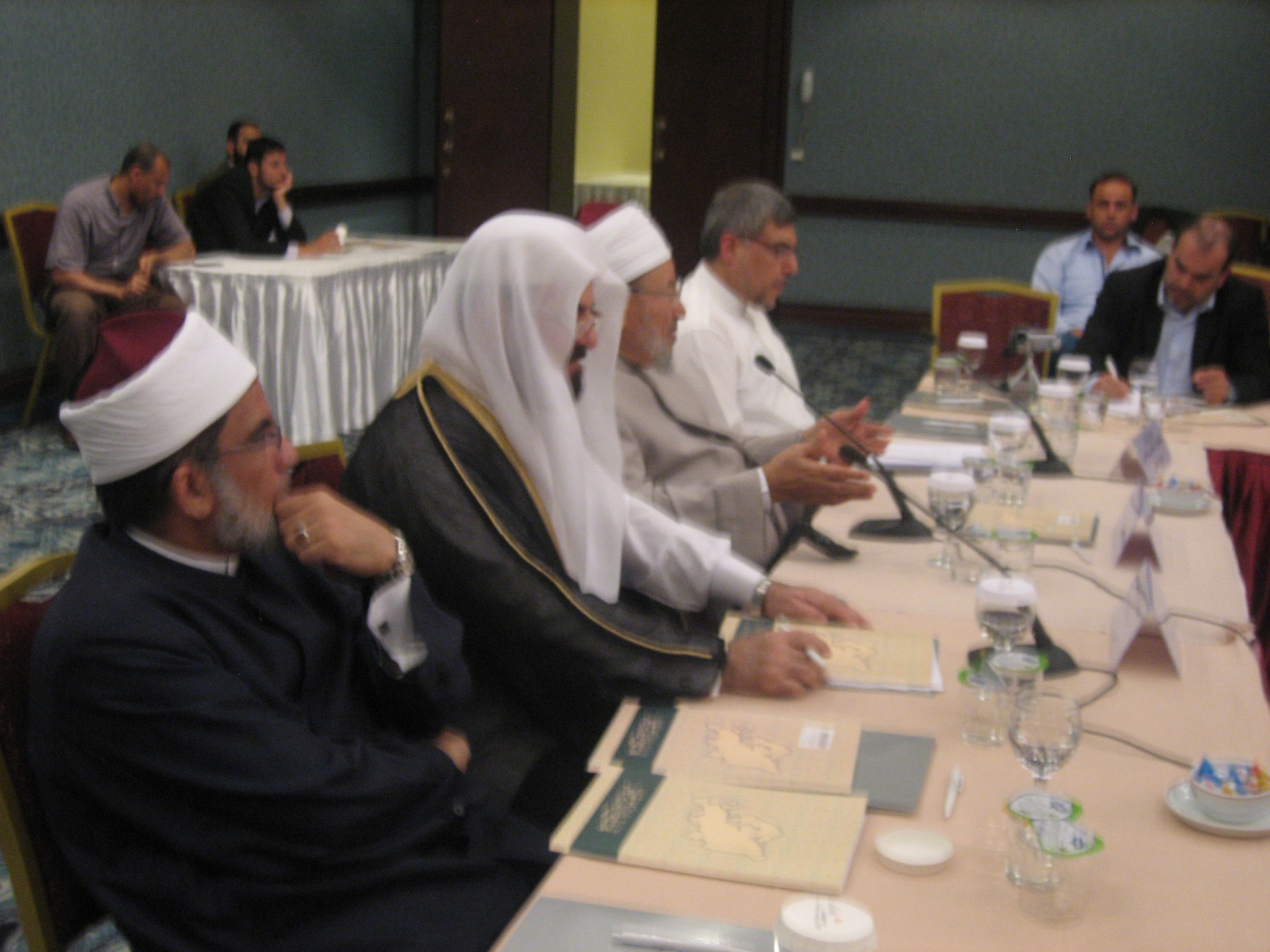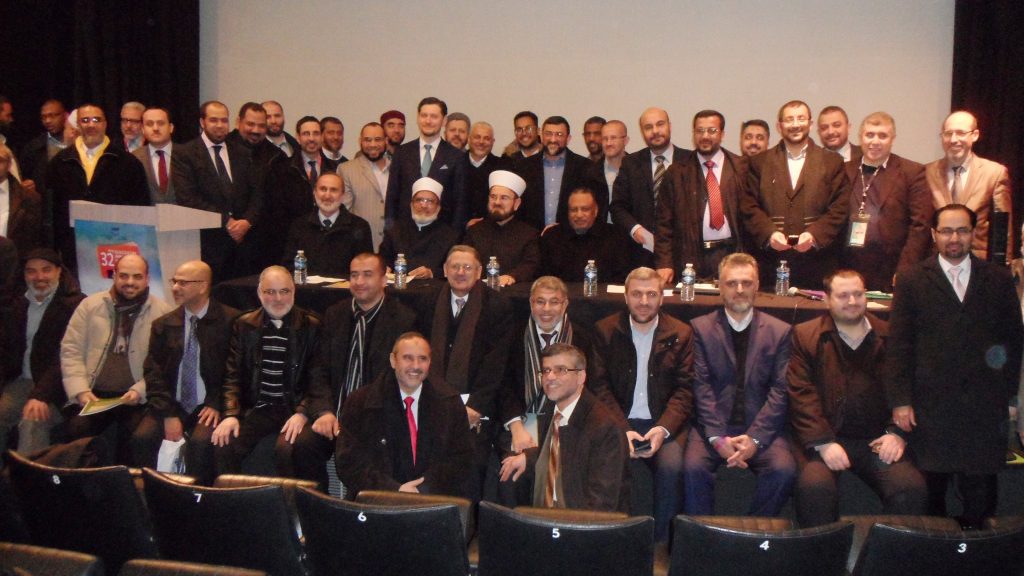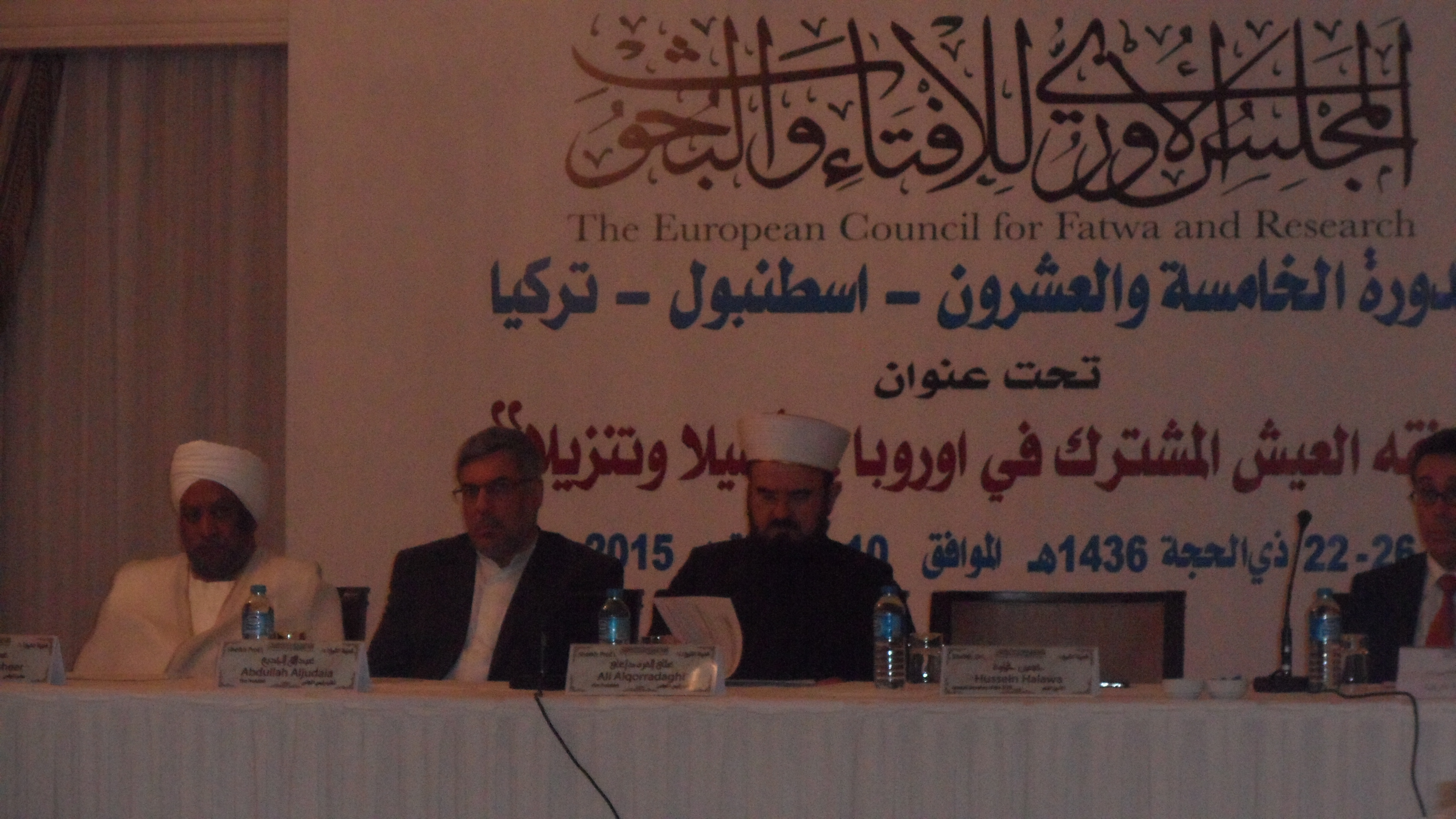The closing statement of the normal fifth session of the European Council for Fatwa and Research held at Islamic
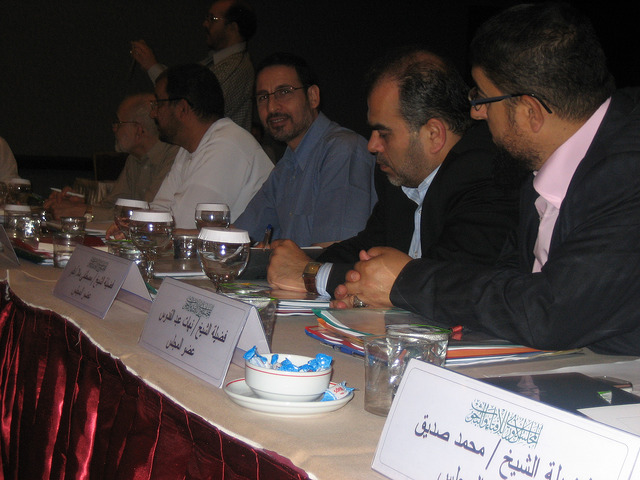
In the name of Allah Most Gracious Most Merciful
The closing statement of the normal fifth session of the European Council for Fatwa and Research held at Islamic Cultural Centre in Dublin from 30th of Moharram till 03rd of Safar 1421 Hijiri 04th of May till 07th of May 2000.
Praise be to Allah, the Lord of the worlds. Blessings and peace be upon our prophet Muhammad, his family, his Companions and who follow his Guidance until the Day of Judgment.
The fifth session headed by Dr. Yousof Al-Karadawi was attended by the majority of the members. The council reviewed the timetable including the regular report of the secretariat-general. The council also took the necessary resolutions regarding finance and administration. The most important were appointing a new secretary general, appreciating the efforts of the ex-secretary general and moving the location of the secretariat-general to Ireland. Then the Council discussed some of the issues stated in the timetable and took the following resolutions:
Resolution 1/5
Are Muslims allowed to inherit from their non-Muslim relatives?
Muslims are allowed to inherit from their non-Muslim relatives and accept bequests. There is no contradiction between this Fatwa and the Hadith in which the prophet (S.A.W.) said: “Muslim is not allowed to inherit from the non-Muslim and the non-Muslim is not allowed to inherit from the Muslim”. The non-Muslim that is meant is he/she that fights against Islam. We should also note that in the early times of Islam Muslims were not deprived of inheritance from their non-Muslim relatives. This is actually the opinion absorbed by some of the Companions e.g. Muaaz Ibn Jabal and Muawiyah Ibn Abu Sufian. That opinion was also held by some of the Followers e.g. Sayid Al-Musaiab, Muhammad Ibn Al-Hanifah, Abu Jaafar Al-Bakr and Masrouk Ibn Al-Ajdaa. Sheik of Islam Ibn Taimiah and Ibn Al-Qaiam also preferred it.
Resolution 2/5
Does woman have the right to divorce herself?
- Originally Islam has given the right of divorce to man.
- Woman has the right to execute divorce if this is a condition in the marriage contract or the husband gives her this right later on.
- A woman an also ask for Khula in from of a judge who should exhaust all means of reconciliation before sentencing Khula.
- A woman may agree with her husband on divorce according to legal conditions.
- A woman may also ask the judge to divorce her if it is legally proved she has been harmed. The judge has the right to sentence divorce if the wife can prove that harm. But the judge should try his best to make reconciliation, as Allah commanded him, especially by arbitrating to people to help him.
Resolution 3/5
What is the Islamic rule of divorce judged by a non-Muslim judge?
Originally Muslim should resort to a Muslim Judge or any acting Muslim judge. But there is no Muslim judge in the non-Muslim countries. Consequently whoever inters into marriage contract according to the laws of these countries should carry out the divorce judged by a non-Muslim judge as entering into marriage contract according to non-Muslim laws means implicitly accepting the results one of which is that divorce can only be carried out by judge. According to the majority, this can be considered general authorization, even if it is not explicitly expressed. The jurisprudential sentences judged by non-Muslim judge should be carried out for the sake of public interest and to avoid chaos and disorder as some Muslim scholars like Al-Izz Ibn Abed Esalam, Ibn Taymiyah and Ash-shatibi observed it.
Resolution 4/5
Is a Muslim woman allowed to uncover her private parts in the presence of non-Muslim women and go to a swimming pool where no men can see her?
There is nothing wrong with going to swimming pool where no men can see her. The private parts of Muslim woman in the presence of non-Muslim woman are like the private parts of a man in the presence of another man, namely from the navel to the knees. The Hanafi school and some scholars of the other three schools hold this opinion. The council recommends the sisters to lower their gaze and should have one of the sisters to train them. As it is clear that the non-Muslim women who go to such a swimming pool do not want to intermingle with men, the Muslim women should call them to Islam.
Resolution 5/5
Is a woman allowed to take part in public work?
The Council would like to attract the attention to the brilliant place of woman in Islam. She is man’s sister and equal to him in humanity, bearing Allah/s trust and integration of rights and duties. Allah says: “And women have rights similar to those over them to what is reasonable”. Undoubtedly woman in the old days and recently has been oppressed and only Islam saved her.
As for taking part in the public work, the Council confirms that woman has the right, which sometimes becomes a duty to found or take part in founding and administrating Islamic Centres and benevolent societies to offer services to Muslims and particularly Muslim women. Woman also has the right to take part in organized projects aiming to recommence Islamic life. In addition to that women have the right to take part in policy either electing or nominating. All these are allowed provided the Islamic rules and morals should not be violated.
Resolution 5/6
The council deliberated on and listened to researches about the following:
- Insurance and what is related there to
- Bourse
- A woman reverses to Islam and her husband embraces another Religion
The council decided to postpone issuing Fatwa regarding these issues and undertakes
More researches.
Recommendations
The council reiterated what it had previously recommended to Muslims the following:
- the council requests the Muslims in Europe and in all non-Muslim countries to strive hard in order to gain recognition as a special religious group and permission to go back in their family affairs to their legal rules; simply because non- Muslim living in Muslims countries do enjoy complete freedom to apply their religious rules ever since the existence of the Muslims state up to today. The Muslim communities should call upon the European authorities to acknowledge this right to the Muslims as it is deemed to be the most important of the human rights as an individual and the most important rights of the different human groups.
- it is urges the Muslim to maintain their Islamic identity and their religious character by fully abiding by shariah of their Lord in whatever He ordained, prohibited, made lawful or unlawful, in their acts of worship, transactions, morality, things they eat and drink, their family and social relationships and dealing with others in a good manner.
- It strongly recommends them to commit themselves to what has been proved through the texts of the book, the Sunnah and the consensus of opinion of the necessity of fulfilling the requirements of the safety covenant, and the conditions of residence in the European counties in which they live. What is most important of them is that:
- They should keep in mind that the souls, properties and honor of non-Muslims are held sacred according to the covenant with which they entered these countries and without which they were not likely to be allowed to enter or continue residing in them. And Allah the almighty says: “and fulfil every covenant. Verily the covenant will be questioned about”
- They should respect the laws of the countries in which they live and which enabled them to enjoy all the guarantees of an honourable life. Allah says: “Is there any reward for good other than good?”
- They should avoid all the illicit unlawful for s of earnings including trying to obtain the social welfare even though they are working or trading.
- They should earnestly endeavour to bring up the new generations of boys and girls in an Islamic manner by establishing schools and educational and recreational centres to protect them from deviation and to make effective and useful members of the society.
- the Council recommends the Muslims in general and those living abroad in particular to hold fast to the Noble Quran, fraternity, tolerance, a moderation and help one another in kindness and righteousness and also to develop a constructive dialogue and adopt peaceful means in the treatment of controversial issues, apart from fanaticism and extremist approaches that distort the image of Islam and do great harm to the Muslim in general and to the Muslim minorities in particular. As for the enemies of Islam and those who are ignorant of its teaching tend to seize opportunities to deform and frighten people from Islam and its followers. Allah says: “Invite (all) to the way of your Lord with wisdom and beautiful preaching”.
The chairman of the Council and its members are grateful to Al-Maktum Charitable Foundation and the Islamic Cultural centre in Ireland and its staff for having hosted and organized this event as well as for their hospitality.
The council is also thankful to the Irish government for issuing entry visa to the member of the council and facilitating holding the Council on its territory in a satisfactory manner.

